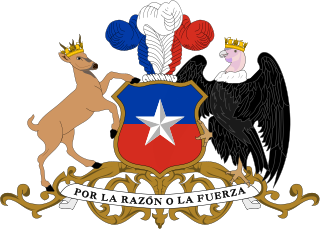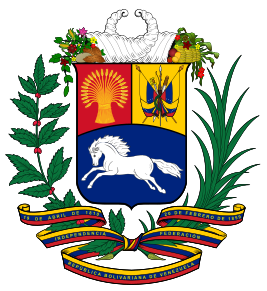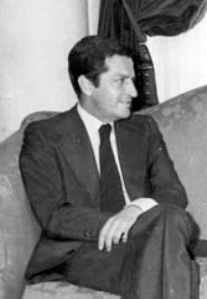
Chile's government is a representative democratic republic, whereby the President of Chile is both head of state and head of government, and of a formal multi-party system. Executive power is exercised by the president and his or her gabinet. Legislative power is vested in both the government and the two chambers of the National Congress. The judiciary is independent of the executive and the legislature of Chile. The Constitution of Chile was approved in a national plebiscite in September 1980, under the military government of Augusto Pinochet. It entered into force in March 1981. After Pinochet left power in 1988, saying this country was ready to keep going along with a plebiscite, the Constitution was amended to ease provisions for future amendments to the Constitution. In September 2005, President Ricardo Lagos signed into law several constitutional amendments passed by Congress. These include eliminating the positions of appointed senators and senators for life, granting the President authority to remove the commanders-in-chief of the armed forces, and reducing the presidential term from six to four years while also disabling immediate re-election. The Economist Intelligence Unit has rated Chile as "flawed democracy" in 2016.

The Senate of the Republic of Chile is the upper house of Chile's bicameral National Congress, as established in the current Constitution of Chile.

The 1973 Chilean coup d'état was a watershed moment in both the history of Chile and the Cold War. Following an extended period of social unrest and political tension between the opposition-controlled Congress of Chile and the socialist President Salvador Allende, as well as economic warfare ordered by US President Richard Nixon, Allende was overthrown by the armed forces and national police.

The National Congress of Chile is the legislative branch of the government of the Republic of Chile.

Chile holds nationwide presidential, parliamentary, regional and municipal elections.

Elections in Venezuela are held at a national level for the President of Venezuela as head of state and head of government, and for a unicameral legislature. The President of Venezuela is elected for a six-year term by direct election plurality voting, and is eligible for re-election. The National Assembly (Asamblea Nacional) has 165 members (diputados), elected for five-year terms using a mixed member majoritarian system. Elections also take place at state level and local level.

The military dictatorship of Chile was an authoritarian military regime that ruled Chile between 1973 and 1990. The dictatorship was established after the democratically-elected socialist government of Salvador Allende was overthrown by a United States CIA-backed coup d'état on 11 September 1973. During this time, the country was ruled by a military junta headed by General Augusto Pinochet. The military used the alleged breakdown of democracy and the economic crisis that took place during Allende's presidency to justify its seizure of power. The dictatorship presented its mission as a "national reconstruction." In reality, the coup was the result of multiple forces, including the United States government and corporations like ITT and Anaconda, which stood to lose profits by Allende's plan to nationalize the copper industry.

The Constitution of the Bolivarian Republic of Venezuela is the current and twenty-sixth constitution of Venezuela. It was drafted in mid-1999 by a constitutional assembly that had been created by popular referendum. Adopted in December 1999, it replaced the 1961 Constitution, the longest-serving in Venezuelan history. It was primarily promoted by then President of Venezuela Hugo Chávez and thereafter received strong backing from diverse sectors, including figures involved in promulgating the 1961 constitution such as Luis Miquilena and Carlos Andrés Pérez. Chávez and his followers (chavistas) refer to the 1999 document as the "Constitución Bolivariana" because they assert that it is ideologically descended from the thinking and political philosophy of Simón Bolívar and Bolivarianism. Since the creation of the Constituent National Assembly in August 2017, the Bolivarian government has declared the 1999 constitution suspended until a new constitution is created.

The Congress of the Republic of Peru is the unicameral body that assumes legislative power in Peru. The congress consists of 130 members (congresistas), who are elected for five-year periods in office on a proportional representation basis.
The Chilean transition to democracy began when a Constitution establishing a transition itinerary was approved in a plebiscite. From 11 March 1981 to March 1990, several organic constitutional laws were approved leading to the final restoration of democracy. After the 1988 plebiscite, the 1980 Constitution, still in force today, was amended to ease provisions for future amendments to the constitution, create more seats in the senate, diminish the role of the National Security Council and equalize the number of civilian and military members.

A referendum on the direct election of the President was held in France on 28 October 1962. The question was whether to have the president of the French Republic elected by direct popular vote, rather than by an electoral college. It was approved by 62.3% of voters with a 77.0% turnout. However, the reform was controversial because it strengthened the executive at the expense of Parliament, and because of the disputed constitutionality of the procedure used.

The constitutional history of Colombia is the process of formation and evolution of the different constitutions that Colombia has had since its formation.

A constitutional referendum was held in Chile on 30 June 1989. The proposed changes to the constitution were approved by 91% of voters.

The 1988 Chilean national plebiscite was a national referendum held on 5 October 1988 to determine whether Chile's de facto leader, Augusto Pinochet, should extend his rule for another eight years. The "No" side won with nearly 56% of the vote, thus ending the General's 161⁄2 years in power.

The Constitution of Guyana is the highest governing document in the Republic of Guyana. It came into effect on October 6, 1980, replacing the constitution enacted in 1966 upon its independence from the United Kingdom. The current Constitution of Guyana contains 12 chapters that are further divided into 232 articles. It also contains a preamble and an oath. Since its 1980 enactment, it has gone through multiple amendments.

The Act for the Political Reform was adopted on December 18, 1976 by the Francoist legislative Cortes with the support of 435 of the 531 prosecutors that formed this Cortes, and submitted to a referendum with the participation of the 77,8% of the census and with a 94,17% votes in favor. It had the character of Fundamental Law, being the last one of the Fundamental Laws of the Francoist State.


















